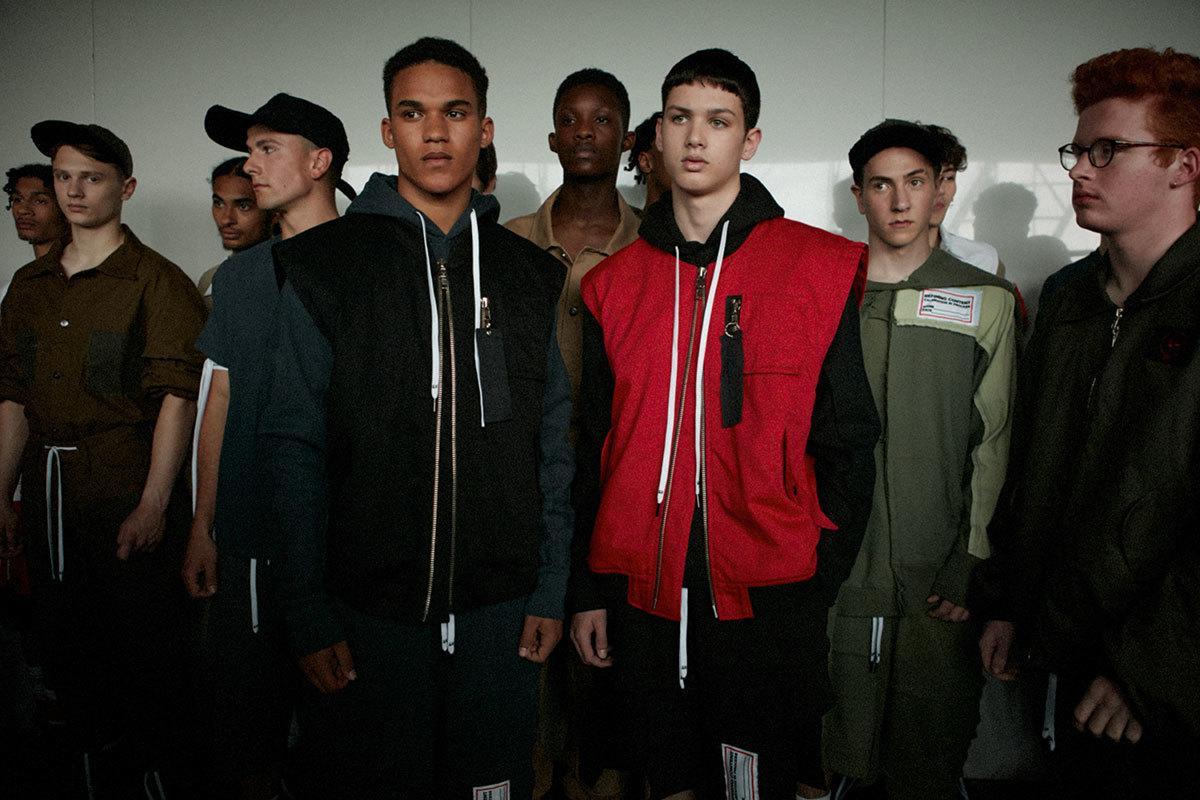Millennials. Mollycoddled by our yuppie parents, basking in the self-important glow of social media. Flagrantly narcissistic, Kardashian-worshipping layabouts who aren’t remotely interested in having “proper jobs.” We just want to go on Love Island and paint our toenails crazy colors. Why would we want to be human rights lawyers when we can be Instagram-famous?
With the seemingly never-ending crop of online articles lamenting our work-shy attitudes — take Joel Stein’s Time article Millennials: The Me Me Me— declaring yourself as a self-employed young creative has never been so intimidating. Stein’s words cut deep: “Lazy, entitled, selfish, and shallow.”
Anxiety and entitlement, frivolity and guilt — being young, self employed, and creative comes with its own particular set of paradoxes now. Whether it’s the pressure to self-promote online, the “there’s no budget” projects, fucking up a tax return, or guiltily asking a family member for another ‘loan,’ it’s clear we’re working through some stuff, and at what cost? Are we working with guilty consciences? Constantly debated taking the easier route of the 9-5. Thinking it might make more sense in the long run, both financially and emotionally to sack the “slashie” career and stop worrying about rent payments.
While family members might dismiss your itinerant career in graphic design as some “coloring in” — and being a self-employed creative is becoming more difficult to justify to supportive, but reluctant parents — getting a proper job right now isn’t exactly a picnic.
We don’t particularly want to be a generation living at home and off our parents, but we’ve little choice. We’re making less money than them; reports show our generation typically earning $10,000 less in our 20s, and spending $50,000 more on rent costs by the time we turn 30. Now add into that tangy tinned-cocktail hurdles such as the likely negative impact of Brexit on our bank balances. The labor market in the U.K. means nobody is handing out permanent contracts any more, job security doesn’t exist, and paying 5p a year into a pension fund doesn’t seem worth the pay off.
So how do we tip-toe around the guilt and anxiety that might come from being constantly lambasted as self-indulgent Nathan Barley narcissists who sit around all day twiddling our thumbs or crafting sculptures in our own genitals’ likeness? As the personal and professional increasingly blurs for the new generation of creatives, we decided to speak to a cross-section of self-starting young people from London to Glasgow via Leeds and Manchester, about the challenges they face, what role their parents play, what they might feel guilty about, and why it might all be worth it in the long run.

Liam Hodges, 27, fashion designer, Kent
“A 9 to 5 via the business I’ve built, is definitely something I’m aiming for. Right now it’s a case of ‘borrow here, pay back some there.’ You just have to keep your head above water until you spend everything on the next collection, and repeat. The ‘I’M OK’ print we used for the SS17 collection was about the stresses of creating a self-sufficient cashflow — it’s scary, we have to remind ourselves ‘it’s ok.’ You can’t start a business hoping you don’t go bankrupt; you start it planning for success.
If I was a doctor I’d probably still be sewing things on back to front, but in terms of any pressure regarding my brand being ‘me:’ no, not really. It’s bigger than just me; it’s my team too. Self-promotion online is the same within any job, really, it’s just a little more personal and amplified [being a designer] but no more than anyone trying to get laid on tinder. I’m just trying to sell you clothes rather than make out with you.”

Dwayne Coleman, 26, artist, Leicester
“My mom was a single parent and she had a lot of help raising me from my auntie and uncle. I grew up on the same estate that they had. They used to cause trouble, setting fires and stuff, but never for drugs or money reasons, they were just having fun, so me going to art school was a first for the family and seemed pretty tame. There was no way for me to rebel because it has already been done, so I had to get smart.
They’re all super supportive, but they don’t quite ‘get’ why I do what I do. I don’t think they understand conceptually why I’m making art. They just know it’s abstract. I only see them three times a year, which makes me feel guilty, and I should worry about my finances more than I do.”

Lotte Andersen, 26, freelance art director, founder of Maxilla, London
“The find the idea of a 9 to 5 quite out of date, and unproductive. Yes, I have rent — studio rent, the outgoing costs of materials — and I worry about my tax bill coming in. It can be scary, but I’m proud of what I’ve achieved. I work as hard as I can to avoid bringing more rubbish pictures into the world. When I work on an event, I’m building a space for people to celebrate and be together. We’re politically living through hell so I think that anything to lift the mood and bridge gaps between people who may never have met is important.
I feel the pressure of being ‘me’ for hire — sometimes. When you’re an art director, you 100% want people to employ ‘you,’ it means you have a style that is recognizable. In many ways my aesthetic opinions are as strong as my personal opinions, but I find this newest incarnation on Instagram — for example, of the ‘cult of self’ — quite vulgar.
My dad is supportive as he’s always worked for himself, but creative parents can be a conundrum. He gives me both ‘I’ve seen it all before darling, can you at least try and make something new?’ coupled with utter excitement once things start falling into place.”
Amelia Dimoldenberg, 23, Youtuber, Chicken Shop Date Founder, London
“I recently monetized my YouTube channel to discover that last month, despite millions of views on some of my episodes, I had made $0.19. I’ve concluded, if I want to make money from freelance work on Chicken Shop Dates then I’ll have to sell the format to a big media company. Everyone who makes Chicken Shop Date with me does it for free out of the goodness of their hearts because we all really believe in the show.
My parents are so supportive financially and emotionally. Since I’ve entered my 20s, my parents have slowly morphed from parents into part-time therapists. Last month I moved out for the first time ever, using money I’ve saved and my student loan. I feel guilty that I’m from London, and crashing at my parents means I can have a career I really enjoy; I know I’m fortunate. I’d really like to own my own property in the future but I worry that I’ll never have the funds. There are a lot of talented people out there who are being overlooked for someone with 100K Instagram followers.”
Chris Pell, AKA DJ Murlo, 27, Leicester and Brighton via Manchester
“I work as a DJ and a music producer, and I also draw and do visuals on the side. My parents kinda understand what I do. Neither of them have seen a set, I think they’d get it more if they did. I was the first person in my family to go to university and I’m proud of what I do. My dad is a great drawer, but he didn’t have the opportunities I had, like government grants, to get to uni. I had to move away from where I grew up to do what I do, which means I miss my family. I have nieces and nephews that I barely know by face and it’s sad.
Quitting a full-time retail job to become a full-time producer was pretty scary, but my girlfriend was so supportive. We moved in with her mum near Brighton for like six months when I fucked up my tax return. I get a lot of anxiety problems and can dig myself into bad weeks, but these are hurdles I’m working through. I’m lucky to be able to afford rent and food and do what I do. I’m very thankful.”
James Massiah, 26, poet, DJ, writer, London
“I’m living at home despite being at the point where I could afford to move out. I guess I’m now beginning to consider investment in a property and living at home offers a great deal of stability.
I’ve saved lots of money hustling here and there. I don’t think of myself as having a ‘career.’ When I leave home, I’d like to think I’ll be in a very secure place, enabling me to take creative and financial risks. My parents don’t really get what I do, but I don’t ask for money. And, with their traditional values and Christian morals, I they fear for my soul ever so slightly more than they for my bank balance.”
Lucy Hancock, 26, freelance journalist, Kent
“I think our generation’s existential crisis centers on our own narcissism — for example: ‘brand me’ and exploring its toxic limits. And that’s why we get labelled narcissists. The Internet is a hungry beast. I think a lot of ‘millennial journalists’ in this age of confessional writing are vulnerable to cannibalizing their personal lives for very cheap copy. I’ve done it myself. Writing 2000 words about your vagina for $150 might seem like a really tip-top idea in your 20s, but I question the posterity of that decision. I feel guilty about contributing to this culture of throwaway content for likes and shares when I could be out building a hospital or something. Our generation doesn’t have the financial freedom to work on an anthology of terrible poetry when a moldy double room in Hackney is $1050 a month.
My dad is in a permanent state of apoplexy about the fact I don’t have a FTJ. He’s from a generation where you just got a job.”
Sinead MacInnes, 26, actress, Edinburgh
“I am (trying) to work as an actor, training part time at Identity School of Acting and working full time (ish) in the alumni office at SOAS, where I did my degree. It took me a long time to be able to say the sentence ‘I’m an actor’ when people ask me what I do, because it makes me cringe. I guess in my head I was like ‘are you an actor, really?’ Self-doubt is a killer. My mom, who raised me alone, is very supportive.
I am in a shitload of debt (various kinds) and owe my friends way too much money. I’ve always been terrible with money anyway and I’m really paying for it now. It would be nice to be stable and earning a solid wage, know what you’re doing next month, and be able to take your mom/friends/boyfriend out for dinner instead of the other way round. I think more than a guilt there’s a fear that it might never amount to anything and I’ll have to start from scratch in something new at 35.”
Credits
Text Nellie Eden
